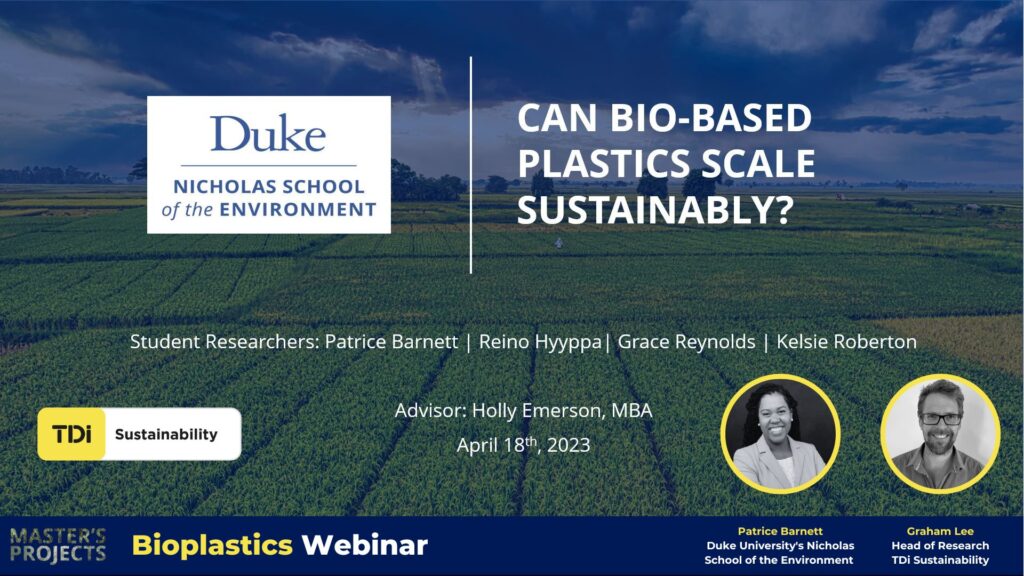
The EU Packaging and Packaging Waste Directive
What the Packaging and Packaging Waste Directive means for your business
In the EU, it’s reported that the total amount of generated packaging materials rose by over 20% (13.6 million tonnes) from 2009 to 2020, with paper and cardboard being the highest contributor to packaging waste. Plastic and glass waste materials followed with a total of 15.5 million tonnes of plastic and 15.2 million tonnes of glass in 2020.
As the global community becomes increasingly aware of environmental challenges, public and private sectors recognise the urgency to incorporate sustainability into their recycling and packaging waste operations. The European Union has been at the forefront of promoting sustainable practices by aligning its initiatives with the overarching 2020 Circular Economy Action Plan, which recognises the importance of sustainable packaging practices and their role in achieving a circular economy.
TDi Sustainability specialises in helping clients adapt their business strategies and prepare for sustainability regulations and practises, which is why we have put together a comprehensive overview of the proposed revision for the European Union’s Packaging and Packaging Waste Directive (PPWD), the significance for your business, and how you can prepare for the directive’s revised targets and reinforced requirements.
What is the Packaging and Packaging Waste Directive?
The Packaging and Packaging Waste Directive (PPWD) is a legislative framework that aims to address the environmental impact of packaging waste. Established in 1994, the PPWD’s primary objective is to reduce packaging waste and promote the transition towards a circular economy. By revising and reinforcing the PPWD, the EU aims to enhance modern resource efficiency, minimise waste generation, and promote the sustainable use of materials throughout the packaging value chain.
While the amended PPWD is still in progress, the EU is actively working on it and aims to put it into effect over the next decade and beyond.
Will your organisation be impacted by the Packaging and Packaging Waste Directive?
If you have a European business, the PPWD will directly impact your products and services. European countries will be required to harmonise their national packaging waste management systems and align them with the directive. This will involve setting ambitious targets for packaging waste prevention, recycling rates, and the use of recycled materials in packaging production. Businesses operating in these countries will need to review their packaging designs, material choices, and waste management strategies to ensure compliance and contribute to the circular economy.
The proposal focuses on multiple areas: enhancing recyclability, promoting reusability, managing packaging size, and increasing the use of recycled content. These new rules are designed to tackle issues such as low recyclability, high waste levels, and the limited use of recycled materials in the packaging industry.
One of the highlights of this proposal is the introduction of specific targets for reusability, particularly in the hospitality and e-commerce sectors. Given the high volume of packaging waste generated by these industries, the PPWD could significantly contribute to their waste reduction and the promotion of a circular economy.
The proposal also addresses transport packaging, emphasising the need for regulations that will not only reduce waste but also contribute to efficient logistics, with measures to scale down the size of packages and reinforcing the principle of ‘less is more’ in sustainable packaging design.
Businesses that produce or handle packaged goods within the European Union will need to prepare for the directive, and companies involved in packaging manufacturing, distribution, retail, and e-commerce will need to adapt their practices to comply with the new regulations. Organisations operating in sectors such as food and beverage, cosmetics, and pharmaceuticals will also be directly affected by the PPWD.
How can you prepare for the Packaging and Packaging Waste Directive?
Businesses should take proactive measures to assess and improve their packaging and waste management practices. Here are some steps you can follow:
1. Conduct a Packaging Audit: Evaluate the environmental impact of current packaging materials, design, and disposal methods. Identify areas where improvements can be made to align with the circular economy principles.
2. Optimise Packaging Design: Focus on reducing material use, increasing recyclability, and incorporating recycled content. Explore innovative packaging solutions that minimise waste and environmental impact while maintaining product integrity.
3. Enhance Supply Chain Collaboration: Engage with suppliers, manufacturers, and distributors to promote sustainable packaging practices throughout the value chain. Foster partnerships that prioritise environmental stewardship and encourage the adoption of sustainable packaging alternatives.
4. Implement Recycling and Waste Management Programs: Develop comprehensive recycling programs within the organisation and collaborate with waste management operators to ensure proper collection, sorting, and recycling of packaging waste. Promote consumer education on recycling and waste reduction.
Strategic consultancy support for packaging and waste management
The Packaging and Packaging Waste Directive (PPWD) presents a significant opportunity for businesses to align their operations with sustainability goals and contribute to a circular economy. By understanding the implications of the PPWD and proactively adapting their practices, companies can enhance their environmental performance, strengthen brand reputation, and meet regulatory requirements.
TDi Sustainability can support you along your packaging waste management journey and provide tailored solutions to help you meet compliance requirements efficiently. Our expert team assists clients with:
• Regulatory Compliance Assessments: Conduct a thorough analysis of your operations to assess the current level of compliance with the PPWD and identify areas for improvement.
• Packaging Optimisation: Work closely with you to optimise your packaging design and materials, considering environmental impact, recyclability, and consumer preferences.
• Supply Chain Engagement: Facilitate collaboration among stakeholders in the packaging value chain, promoting sustainable practices and fostering partnerships that support your transition into a circular economy.
• Training and Education: Offer training sessions and workshops to raise awareness about the PPWD and provide guidance on best practices for sustainable packaging and waste management.
Reach out to us and learn how we can assist your company in achieving sustainable and responsible packaging solutions.
You may also be interested in:

Can Bio-Based Plastics Scale Sustainably: Webinar
Bio-based plastics represent a potential alternative to the use of fossil fuels in the traditional plastics supply chain. However, the upscaling of bio-based plastics faces challenges, including concerns over competition with food production, a lack of consumer understanding of bioplastics, and difficulties achieving cost competitiveness with traditional plastics.
Watch the webinar or read the webinar transcript to learn more now.
 supply chain
supply chain
Re-defining legacy | Supporting companies and investors in achieving positive legacies in mining operations
3rd July 2025 supply chain
supply chain
Responsible sourcing of sand and silicates | Identifying and mitigating the hidden risk in your supply chains
24th June 2025 supply chain
supply chain
